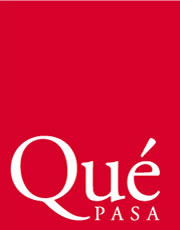read
-
Times of India on Against Marriage
 The Times of India featured my Aeon article “Against Marriage” on 22 April 2018. You can read the coverage here.
The Times of India featured my Aeon article “Against Marriage” on 22 April 2018. You can read the coverage here. -
Against Marriage at Aeon
 I have a 3,300 word essay on “Against Marriage” at Aeon magazine. You can read the article here.
I have a 3,300 word essay on “Against Marriage” at Aeon magazine. You can read the article here. -
Neutrality at University of Edinburgh
I presented my paper “Reasonable disagreement and the neutralist dilemma: Abortion and circumcision in Matthew Kramer’s Liberalism with Excellence” at the University of Edinburgh in March 2018. You can read their account of the session on the Just World Institute blog here.
-
Edinburgh Just World Institute blog
The University of Edinburgh Just World Institute blogged about my paper “Reasonable disagreement and the neutralist dilemma: Abortion and circumcision in Matthew Kramer’s Liberalism with Excellence”. You can read the blog here.
-
Ask Me Anything (AMA) on Reddit
 On 16 April I’ll be doing an AMA – Ask Me Anything! – for Reddit Philosophy. You can join in the fun at 12noon EST / 5pm GMT. Read the discussion here.
On 16 April I’ll be doing an AMA – Ask Me Anything! – for Reddit Philosophy. You can join in the fun at 12noon EST / 5pm GMT. Read the discussion here. -
Gli Stati Generali on the “Me Too” movement
 I was interviewed by Valentina Saini for her piece “È L’ALBA DI UN’INTERNAZIONALE FEMMINISTA?” on the Italian news site Gli Stati Generali. You can read the piece, in Italian, here.
I was interviewed by Valentina Saini for her piece “È L’ALBA DI UN’INTERNAZIONALE FEMMINISTA?” on the Italian news site Gli Stati Generali. You can read the piece, in Italian, here.For those who don’t speak Italian I don’t have a translation of the full article, but here are the answers I gave to Valentina Saini’s questions.
VS: In many countries and regions of the world, sexual harassment in the form of a “pat” on a woman’s “butt”, for example, is seen as something innocent and harmless, nothing one should be especially offended by – many women think so too. Why is that? Is women’s body still something that does not belong exclusively to them – culturally speaking?
A (CC): Women and girls are taught from an early age that one of their most important roles is to be attractive, pleasing, submissive and helpful to others. This education comes from many sources: gendered differences in early upbringing, acceptable social roles for men and women, media portrayals of women that focus on their looks, role-models and stereotypes. It is not surprising in this context of gender inequality that some women internalise the role given to them, and think of their bodies as primarily existing to be appraised and used by others. That doesn’t make it acceptable.
Q (VS): The Me Too hashtag arose in the US and rapidly spread in many other parts of the world, meaning that sexual abuse and sexual harassment are a global phenomenon. Is it possible that even in so-called developed countries, sexual harassment in the workplace is subtly interpreted as “the price” women may have to pay to enter a once male-only institution, that is, paid work?A (CC): Sexual abuse and sexual harassment certainly are global. Women know this and have known it for a very long time. Women do not enter the workplace on equal grounds to men. They are multiply disadvantaged by many forms of sexism: sexual harassment, the gender pay gap, the incompatibility of work and family life, stereotyping and discriminatory behaviour. Gender inequality of all forms needs to be dismantled, and the Me Too movement is one important part of the global movement of women and feminists against sexism. -
The Reading Lists
Want to know what books I like? You can read an interview with me by Phil Treagus of The Reading Lists blog here. His questions were fascinating to think about and very hard to answer!
-
Cosmetic procedures: ethical issues
 Nuffield Council on Bioethics, 2017
Nuffield Council on Bioethics, 2017This report was written by the Working Party on Cosmetic Procedures, of which I am a member.
There has been increasing demand for invasive cosmetic procedures in the UK, prompting questions about potential risks to users and the lack of regulation and professional standards in this area. This report explores ethical issues in cosmetic procedures with a particular focus on the role and responsibilities of health and scientific professionals and others in responding to demand for invasive non-reconstructive procedures that aim to enhance or normalise appearance. It engages in detailed ethical analysis and makes recommendations affecting all parts of the sector.
You can read the report here.
-
Against Marriage on BMJ blog
 Richard Smith writes in the British Medical Journal (BMJ) blog that he is persuaded by the arguments of Against Marriage. You can read the full article here.
Richard Smith writes in the British Medical Journal (BMJ) blog that he is persuaded by the arguments of Against Marriage. You can read the full article here.“Chambers is against marriage on the grounds of equality and liberty. Women are not equal with men within marriage, and the state by attaching a bundle of rights and duties to marriage creates a hierarchy of relationships with marriage at the top, making unmarried couples and single people inferior. Much of the population, including my wife and I, thinks that “common law wives” have similar rights to married women, but in fact they have none. By bundling rights and duties together, marriage (and civil partnerships) restrict autonomy; if they weren’t bundled people might choose different combinations of rights and duties.
“There is a need, Chambers accepted, for the law to regulate relationships, particularly to protect the vulnerable, but neither marriage nor civil partnership, which all the speakers criticised as being “one size fits all,” need to be that mechanism. She pointed out that parenthood might be a better basis for regulation than marriage, not least because parent-child relationships are more durable than couple relationships. Tatchell advocates a model whereby people would select “any significant other” (perhaps a best friend, sibling, or lover) and then choose among a menu of rights and duties. Such an arrangement would lead to greater equality and autonomy. All three speakers agreed that something along those lines would be better than either marriage or civil partnerships.
“And at dinner afterwards, my wife and I, despite being married for 40 years, agreed.”
-
“Time to abandon marriage?” in the TLS
 The Times Literary Supplement (TLS) published my piece “Time to abandon marriage?” as part of their Ethical Angles Series (2017). Read it here.
The Times Literary Supplement (TLS) published my piece “Time to abandon marriage?” as part of their Ethical Angles Series (2017). Read it here. -
Broadly at Vice.Com
 I provided comment and analysis for an article on the sharing economy by Sirin Kale at Broadly, titled “ ‘There was a Stranger in My Own House’: Is the Sharing Economy Safe for Women?”. You can read the article here.
I provided comment and analysis for an article on the sharing economy by Sirin Kale at Broadly, titled “ ‘There was a Stranger in My Own House’: Is the Sharing Economy Safe for Women?”. You can read the article here.Women and minorities appear more likely to experience violence and discrimination on platforms like Uber and Airbnb. How did the gig economy go so wrong?
-
Philosophers on same-sex marriage at Daily Nous
 I am one of a panel of philosophers discussing the Supreme Court’s ruling on same-sex marriage at the Daily Nous blog. You can read it here.
I am one of a panel of philosophers discussing the Supreme Court’s ruling on same-sex marriage at the Daily Nous blog. You can read it here.On Friday, June 26th, the Supreme Court of the United States announced its ruling in Obergefell v. Hodges, holding that the Fourteenth Amendment of the United States Constitution guarantees the recognition and provision of same-sex marriage. It requires each of the 50 states in the US to issue marriage licenses to same-sex couples seeking them, and to recognize legitimate same-sex marriages performed in other jurisdictions. … The decision is a landmark in the development of the rights and liberties of gay and lesbian people in the US, and is not without its controversy, of course. Many questions have arisen about the reasoning of the majority and that of the dissenting justices, as well as the significance of the decision. To get clearer on some of these issues, [Daily Nous] asked several philosophers to contribute some brief remarks on the ruling. They are: Elizabeth Brake (Arizona State), Cheshire Calhoun (Arizona State), Clare Chambers (Cambridge), John Corvino (Wayne State), Brook Sadler (South Florida), Edward Stein(Cardozo), and Kevin Vallier (Bowling Green).
-
3am magazine
 An interview with me, focusing on my work in Sex, Culture, and Justice. Read the interview here.
An interview with me, focusing on my work in Sex, Culture, and Justice. Read the interview here.Clare Chambers chews over the core philosophical issues of sex, culture and justice for liberal feminists, brooding on practices of physical modification, social construction’s role in negotiating claims of universalism and tolerance, Foucault and the panopticon, Bourdieu and habitus, Mackinnon’s critique of liberal feminism, taking violence against women seriously, Benhabib’s discourse ethics, how not to be a relativist, of what kind of universality is worth defending and of the state of academic philosophy and feminism. This is a voice from a war zone. Listen up!
-
Liberal Views
-
The Philosophers’ Magazine

My piece “Liberal views” discusses different models of separation of church and state, as they are conceptualised philosophically and as they apply to actual polities. The article is here.
-
UK Feminista Thinkpiece
 Edited excerpt from Sex, Culture, and Justice published by UK Feminista as their first Thinkpiece on “Cosmetic Surgery, Culture, and Choice”. Find it here.
Edited excerpt from Sex, Culture, and Justice published by UK Feminista as their first Thinkpiece on “Cosmetic Surgery, Culture, and Choice”. Find it here. -
UK Feminista in The Guardian
-
Fabiana
 My work was cited in Fabiana, the magazine of the Fabian Society Women’s Network, issue 2 p. 7 (Winter 2012). Print and on-line, on-line available here.
My work was cited in Fabiana, the magazine of the Fabian Society Women’s Network, issue 2 p. 7 (Winter 2012). Print and on-line, on-line available here. -
www.opendemocracy.net
 My chapter on “Feminism” from the Oxford Handbook of Political Ideologies was cited in Rahila Gupta, “Has neoliberalism knocked feminism sideways?” 4th January 2012. Available here.
My chapter on “Feminism” from the Oxford Handbook of Political Ideologies was cited in Rahila Gupta, “Has neoliberalism knocked feminism sideways?” 4th January 2012. Available here. -
Qué Pasa magazine, Chile



